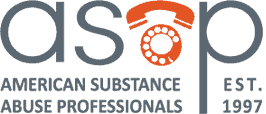By: ASAP
In an effort to maintain public safety, safety-sensitive workers are required to submit to drug testing under the provisions of the Department of Transportation (DOT). The purpose of the DOT drug test is to identify traces of specific substances which may alter the performance of the worker. These substances include marijuana, cocaine, amphetamines, opioids, PCP and their derivatives. If a DOT-regulated employee tests positive for any of these substances, he or she must be removed from their position and complete the Return to Duty process before returning to safety-sensitive duties.
Each month, the Federal Motor Carrier Safety Administration (FMCSA) Clearinghouse, a database of the DOT that tracks violations of Commercial Driver License (CDL) and Commercial Permit License (CPL) holders, releases a report of the most common drugs causing the failure of a DOT drug test. This blog explores some of the more common reasons safety-sensitive employees fail a DOT drug test.
Marijuana and THC are Top Drugs for Failing a DOT Drug Test
According to the FMCSA Drug and Alcohol Clearinghouse May 2021 Summary Report, marijuana and THC were the most common substances detected in DOT drug tests. These substances account for 42,534 positive DOT drug tests between January 6, 2020 and June 1, 2021. That is more than half of the 80,098 violations reported within that timeframe.
There are several reasons why marijuana reports are significantly higher than others. Since the legalization of marijuana in many states, it is more accessible for drivers. However, it is still not legalized on the federal level and therefore, the DOT does not permit marijuana use by safety-sensitive workers. Even if a person has a medical marijuana card, they are subject to the same regulations and are not permitted to use marijuana while working in a safety-sensitive position.
THC has also been reported to cause a high volume of positive DOT drug tests. This is because CBD products are on the open market and not FDA regulated which causes much confusion on its contents to the consumer. CBD products containing greater than 0.03% THC will result in a positive DOT drug test. Therefore, DOT-regulated workers are urged to proceed with caution when using CBD for anxiety, pain relief, depression, etc. due to the lack of regulations surrounding these products.
Cocaine Usage and Drug Test Refusals on the Rise
Refusing to take a DOT drug test has the same consequences as failing a drug test. Your employer must immediately remove you from safety-sensitive duties, per DOT regulations. Your employer may have a company policy that indicates whether to terminate your employment, allow for a second chance program or allow you to perform non-safety sensitive work. However, you cannot perform any safety-sensitive responsibilities until you have completed the DOT Return-to-Duty process with a qualified DOT Substance Abuse Professional (SAP).
From January 6, 2020 to June 1, 2021, there were 9,193 drug test refusals reported to the Clearinghouse. This is just slightly lower than the number of positive DOT drug tests for cocaine, the second most common substance. During the same timeframe, 11,255 reports of cocaine were registered.
All other detected substances had less than 600 reports. It is important to recognize that more than one substance can show positive on a drug test, so some positive reports overlap.
When an Employee Tests Positive on a DOT Drug Test
When an employee or candidate tests positive or refuses a DOT drug test, the employer must remove them immediately from safety-sensitive duty. The employee or candidate will need to work with a qualified DOT Substance Abuse Professional (SAP) for an evaluation. From there, the SAP will provide treatment and/or education recommendations for the employee or candidate. Once those are completed, the employee will meet with the same SAP to determine if they are ready to return to safety sensitive duty. The employee or candidate is required to pass an observed follow-up drug test before returning to safety-sensitive work.
American Substance Abuse Professionals (ASAP) has a nationwide network of over 5,000 qualified DOT SAPs to assist you. Our clients have an 86% success rate at getting back to work safely. Call 888-792-2727 to speak to an Advisor today.

